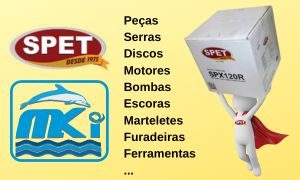Learn Portuguese
Uncategorized 17/06/2009,Portuguese ranks sixth among the world’s languages in terms of the number of native speakers. More than 200 million people speak Portuguese today. So there is a market for Portuguese and opportunities related to its learning.
Today, like English, Portuguese has spread far beyond Europe, and in addition to being the official language of Portugal, it is also the official language in Angola, Brazil, Cape Verde, Guinea-Bissau, Mozambique, and Sao Tome and Principe, and is spoken in many other countries. For example there is a Portuguese-speaking community in South Africa!
Now, if you are planning on going to a Portuguese-speaking country for whatever reason; on business, missionary work, or for fun…let me give you some help with its practice. There are many places where you can read, listen and watch Portuguese in real time.
Practicing is the most important part of the process of acquiring a language, any language. Now when you are in Canada, US, China or Korea it probably isn’t that easy to find a native speaker to talk to, right?
The following Web sites can help you out:
– Globo.com, TV, news, radio.
– Terra.com.br, TV, news, radio.
– Veja.com.br, a famous magazine.
– Radiobras.gov.br, Brazil’s government radio.
– Portuguese in the Church,a survival guide.
Music
Brazilian Portuguese music can also be a great help if you learn how to use the following Web site. Use the search facility and look for examples by Caetano Veloso, Gilberto Gil, Kid Abelha… Get the lyrics then click on the little icon of a head with headphones on the page and listen to it.
Comparative Reading
Reading is a great way to acquire vocabulary and internalize grammar, the best kind of grammar actually is the empirical one — you know it is that way, but not necessarily why it is so. This grammar knowledge can be acquired by reading and listening to good material.
Comparative reading is a great tool. Get yourself a world classic, let’s say Robinson Crusoe by Daniel Defoe, you may have one in Taiwanese/Chinese/English and another in Portuguese, done! You can go turning the pages together and enjoying your practice without the need for tedious work with the dictionary.
You could use the Bible or any other religious book of your liking. With the good book you may go to a section and read it; like Philemon or better Paul’s Letter to Philemon, a one page book. You may read it in your own language two or three times, then go to the Portuguese version and study it knowing all its meaning verse by verse.
This last idea is even easyer to practice if get youself a Bilingual Bible – one that has Portuguese and English side by side.
There you are! Dear reader, should you want some help just drop a line and I will see what I can do, ok?
——-








 Facebook
Facebook Youtube
Youtube